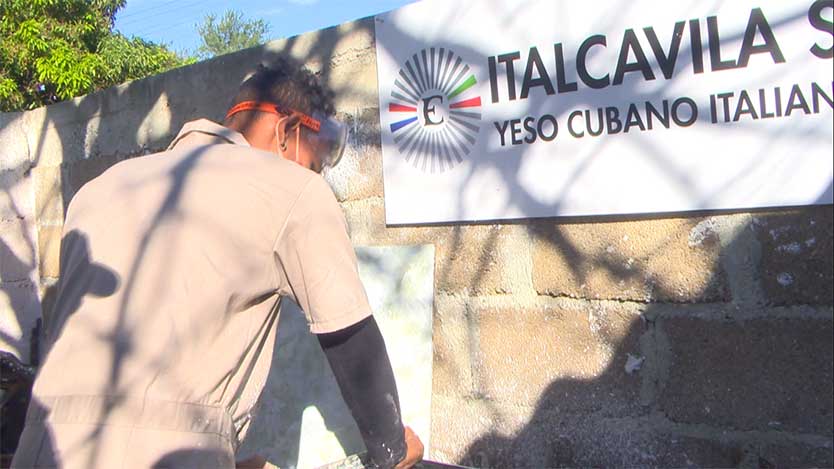
With the publication on the website of the Ministry of Economy and Planning of a new group of micro, small and medium-sized enterprises (MSMEs), Ciego de Ávila has already approved 37 of these new economic actors, at the end of March 3.
The MEP note highlights that, of the 92 new additions, 89 of them are private MSMEs and three correspond to non-agricultural cooperatives. Now, there are 2,269 approved economic actors since the process began in September 2021 in Cuba. Of the MSMEs, 2,188 of these companies are private, 49 state-owned ones, and 32 of them are cooperatives.
The local list, inaugurated here by Agri-business Media Luna, currently brings together a diverse group of entrepreneurs in the most dissimilar branches of production and services; from activities related to the construction and repair of buildings to the manufacture of textile garments.
Precisely the enterprises specialized in construction services are the most represented, with 11. Concentrated between Ciego de Ávila and Morón, at the beginning they pose a territorial imbalance in terms of construction capacity in the municipalities, but the law provides that MSMEs “cover ground”, just as the rest of the state business fabric would do.
In descending order are those dedicated to produce food (five of them), led by two heavyweights such as Media Luna and La Ceiba, the first with proven export capacity in 2021. Also in that group is Carne D'Tres, initially constituted as a development project local and in which, in a certain way, many hopes are pinned.
If the medium-sized company manages to produce the planned tons of meat through the scheme that has been proposed, it would open the way to others and could begin to recover pig production in Ciego de Ávila, which last year hit rock bottom. As colleague Katia Siberia points out, in 2022 we are going with less meat and more problems.
In order to occupy the market issues that the Lídex Furniture Company and individual producers do not cover today, and to compete with them, three small Ciego de Ávila companies are already registered:
Unimuebles, Nexos and Amanda Furniture. Another three specialize in gastronomic services, including El Pino Atrevido, one of the two MSMEs led by a woman, Idilexy Morales Fajardo.
At the end of February, the owner of the restaurant told the press that "after 11 years of service, the establishment takes on the challenge of climbing, projecting itself towards greater possibilities."
The other female in charge of a private business recognized as a limited liability company is Viglietti Cardoso Pérez. Her Paramar microenterprise will make and market textile garments.
For the economist Henry Colina Hernández, assistant professor at the Faculty of Economics of the University of Havana, one of the challenges of entrepreneurship in Cuba is "to insist on the promotion of companies and projects that contribute to close the gaps detected by multiple investigations of the Social Sciences. This is evidenced both in the majority of male ownership of the projects presented, as well as in their territorial location or biases still present of discrimination based on skin color”.
The territorial location indicated by the academic is relevant in Ciego de Ávila. Of the 37 MSMEs, 19 are located in the provincial capital, seven in Chambas and six in Morón. Thus, the three localities with the largest population and development are consolidated as those with the largest number of this type of new economic actors, although the difference between the capital municipality and the other two is significant.
Four other territories have at least one of these private businesses, while Baraguá, Primero de Enero and Bolivia still do not have any.
The expert's recommendation related to the need to design incentives from the central government or at the local level, to reduce gaps in territoriality, gender and sectors of the economy, should be followed to the letter, to avoid reproducing the inequities that produced the uneven development of the territories.




